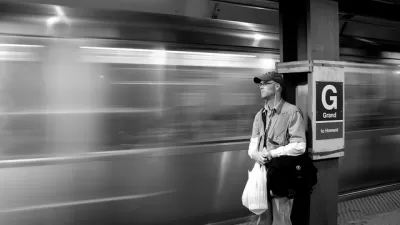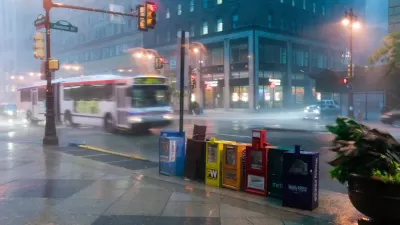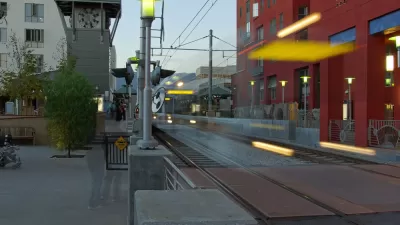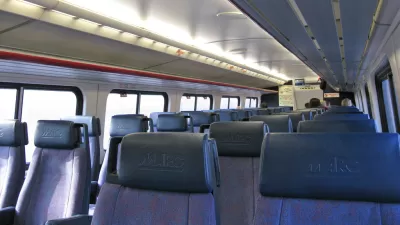APTA

A Tale of Two Estimates
While transit agency data shows ridership going down, Census data shows ridership going up. Why?

Transit Ridership Declined Nationally in 2018, APTA Report Finds
The latest data from the American Public Transportation Association reveals the national consequences of many local examples of declining transit use.
Does Ride-Hailing Complement Public Transit—Or Vice Versa?
Thanks to technology-enabled ride-hailing services, more households have the ability to go car-lite now than in preceding generations, according to a new study prepared for the American Public Transportation Association.
Ambitious Subway Agenda Endorsed by Transportation Secretary Foxx
When San Francisco Supervisor Scott Wiener proclaimed last month that his city "should always have a subway under construction," there were many doubters due to the funds required and unlikelihood of federal support. "Aggressive" is good, says Foxx.
Republican Co-Sponsors Rep. Earl Blumenauer's 15-cent Gas Tax Bill
The good news is that a House Republican now supports raising the gas tax to balance the ailing Highway Trust Fund. The bad news is that come Jan. 3, Rep. Tom Petri (R-Wis.), a 36-year member, will be a former congressman—he is retiring on Dec. 26

The New Transit User Fee: Real Estate Rent
Driven by a need to meet growing costs amid unstable federal subsidies, metropolitan transit agencies are eying their properties, particularly parking lots, as money makers from new residential and commercial development.
Perfect Logic—Why Drivers and Transit Users Support Public Transportation
The American Public Transportation Association's Director of Policy Development and Research responds to Eric Jaffe's question: "If So Many People Support Transit, Why Do So Few Ride?"

Commuter Rail Lines Multiply, But Where Are the Riders?
Despite a flurry of new commuter rail lines in operation, ridership increased a mere .5% during a record year for transit. Worse yet, some of the newer lines saw the greatest decreases. The answer: increase service to attract riders.
U.S. Experiences Second-Highest Transit Ridership Since 1957
According to a new report, U.S. transit ridership increased to 10.5 billion rides in 2012 - a 1.5% increase over 2011, despite transit shutdowns and reductions caused by Superstorm Sandy. High gas prices, and their volatility, was a major cause.
Transit Aid: The Operating Vs. Capital Dilemma
Transit advocates are used to battling the 'road lobby', but this article reports on a clash between small and mid-sized transit agencies (who want more flexibility) against the larger ones, as well as the main transit lobbying organization, APTA.
Public Transit And Road Building Lobbies - Tied At The Hip?
Why would the nation's major public transit organization work so closely with America' major road lobbying group, even when it comes to opposing landmark climate legislation aimed at reducing 33% of U.S. greenhouse gas emissions from transportation?
More Passengers And Less Funding Threaten To Cripple Transit Agencies
The recession has made many commuters more transit-dependent while shrinking the public coffers that may for the bulk of transit service. Without further subsidies, agencies face tough choices because of this "incredible paradox."
Gas Prices Surge, Transit Ridership Jumps, VMT Drops
As gas prices inch beyond $4 a gallon, transit trips increase by 3.3% for the first quarter of the year and vehicle miles traveled drop 4.3% in March.
City of Costa Mesa
Licking County
Barrett Planning Group LLC
HUD's Office of Policy Development and Research
Mpact Transit + Community
HUD's Office of Policy Development and Research
Tufts University, Department of Urban and Environmental Policy & Planning
City of Universal City TX
ULI Northwest Arkansas
Urban Design for Planners 1: Software Tools
This six-course series explores essential urban design concepts using open source software and equips planners with the tools they need to participate fully in the urban design process.
Planning for Universal Design
Learn the tools for implementing Universal Design in planning regulations.
































